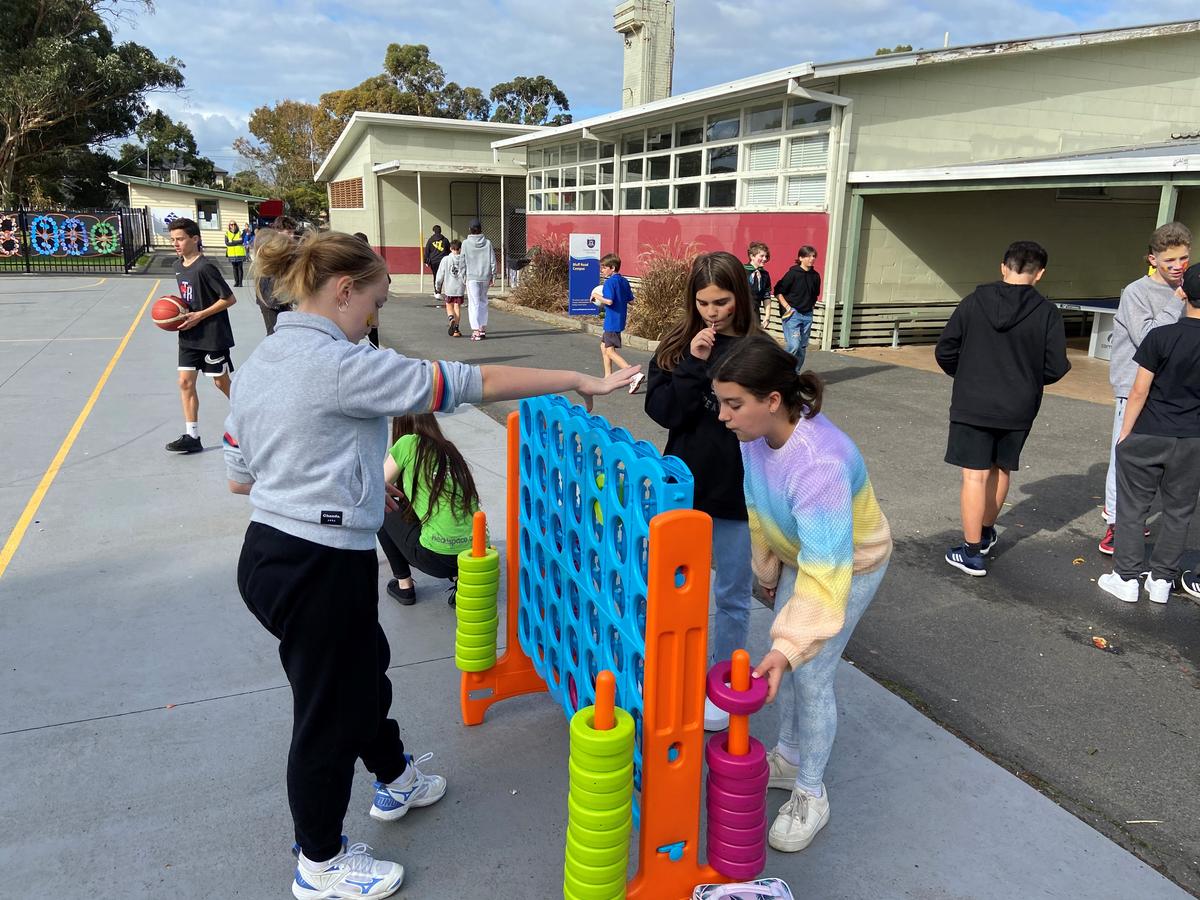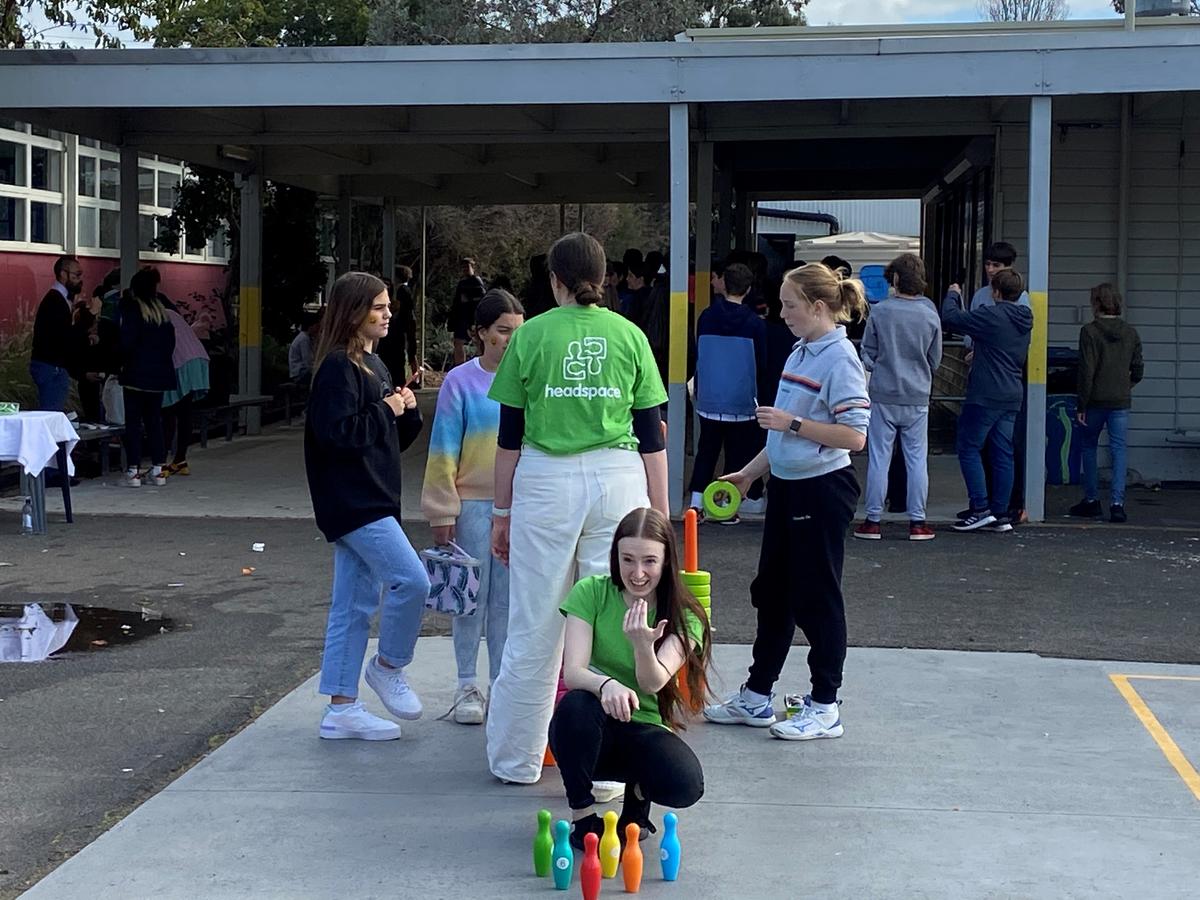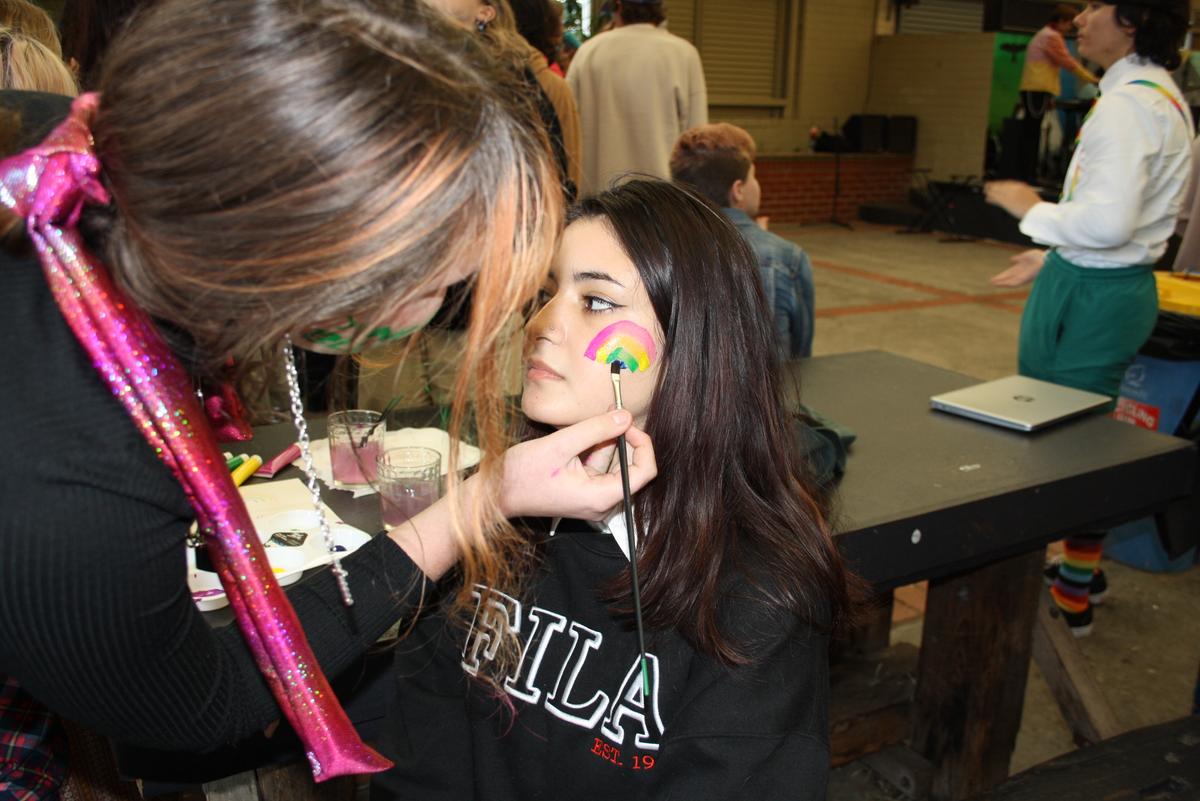Student Wellbeing
The Wellbeing Team

Student Wellbeing
The Wellbeing Team


International day against Homophobia, Biphobia, Interphobia & Transphobia was on Monday 17th of May. Here at Sandringham College we aim to promote inclusion, celebrate diversity and work against any form of discrimination, so it was an easy decision for us to celebrate IDAHOBIT Day.
As a free dress day where the whole school community was asked to dress in rainbow to show support, we aimed to raise awareness of the work that is still left to do to combat discrimination towards the LGBTQIA+ community.


At Holloway road, we were lucky enough to have a band of year 13's and current students who performed in the canteen and got plenty of us dancing. We also had face paint which
helped us to continue to spread the rainbow coloured cheer.
At Bluff road, we had some visitors from Headspace who helped us play games and spoke to us about the importance of mental health within the LGBTQIA+ community. We also had face paint and everyone looked fantastic in their rainbow clothes.




As many of you would be aware students across the school are participating in the Elephant Education program on consent and specifically sexual consent. Some key points covered in the sessions included:
As parents you can help your children learn about consent long before you relate it to sex. As children get older, it’s important to talk with them about sexual consent more directly.
How do I talk to my teen about sexual consent?
You can use everyday moments or examples from TV shows, movies, books and media stories to get conversations started leading to focus directly on consent. For example:
You could also use online resources to get your child thinking and talking about consent. For example, Planned Parenthood – How Do You Know if Someone Wants to Have Sex with You? is a video featuring diverse couples and frank language. It’s likely to be relatable for teenagers.
More information can be found at: https://raisingchildren.net.au/school-age/connecting-communicating/tough-topics/sexual-consent-how-to-talk-with-children-teens"